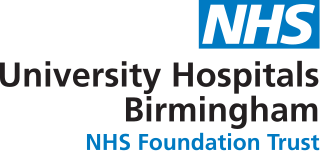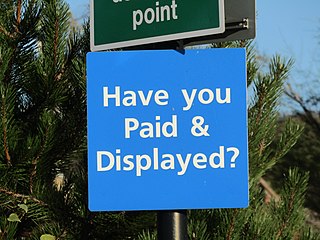Related Research Articles
General practice is the name given in various nations, such as the United Kingdom, India, Australia, New Zealand and South Africa to the services provided by general practitioners. In some nations, such as the US, similar services may be described as family medicine or primary care. The term Primary Care in the UK may also include services provided by community pharmacy, optometrist, dental surgery and community hearing care providers. The balance of care between primary care and secondary care - which usually refers to hospital based services - varies from place to place, and with time. In many countries there are initiatives to move services out of hospitals into the community, in the expectation that this will save money and be more convenient.

NHS Digital is the trading name of the Health and Social Care Information Centre, which is the national provider of information, data and IT systems for commissioners, analysts and clinicians in health and social care in England, particularly those involved with the National Health Service of England. The organisation is an executive non-departmental public body of the Department of Health and Social Care.

The University Hospitals Birmingham NHS Foundation Trust provides adult district general hospital services for Birmingham as well as specialist treatments for the West Midlands.

NHS Scotland, sometimes styled NHSScotland, is the publicly funded healthcare system in Scotland and one of the four systems that make up the National Health Service in the United Kingdom. It operates 14 territorial NHS boards across Scotland, supported by seven special non-geographic health boards, and Public Health Scotland.

Emergency medical services in the United Kingdom provide emergency care to people with acute illness or injury and are predominantly provided free at the point of use by the four National Health Services (NHS) of England, Scotland, Wales, and Northern Ireland. Emergency care including ambulance and emergency department treatment is only free to UK residents and a charge may be made to those not entitled to free NHS care.

Healthcare in the United Kingdom is a devolved matter, with England, Northern Ireland, Scotland and Wales each having their own systems of publicly funded healthcare, funded by and accountable to separate governments and parliaments, together with smaller private sector and voluntary provision. As a result of each country having different policies and priorities, a variety of differences have developed between these systems since devolution.
The NHS Business Services Authority (NHSBSA) is an executive non-departmental public body of the Department of Health and Social Care which provides a number of support services to the National Health Service in England and Wales. It was created on 1 October 2005 following a review by the Department of Health of its "arm's length bodies". It began operating on 1 April 2006, bringing together five previously separate NHS business support organisations.
NHS Highland is one of the fourteen regions of NHS Scotland. Geographically, it is the largest Health Board, covering an area of 32,500 km2 (12,500 sq mi) from Kintyre in the south-west to Caithness in the north-east, serving a population of 320,000 people. In 2016–17 it had an operating budget of £780 million. It provides prehospital care, primary and secondary care services.

The National Health Service (NHS) is the publicly funded healthcare system in England, and one of the four National Health Service systems in the United Kingdom. It is the second largest single-payer healthcare system in the world after the Brazilian Sistema Único de Saúde. Primarily funded by the government from general taxation, and overseen by the Department of Health and Social Care, the NHS provides healthcare to all legal English residents and residents from other regions of the UK, with most services free at the point of use for most people. The NHS also conducts research through the National Institute for Health and Care Research (NIHR).
Healthcare in Scotland is mainly provided by Scotland's public health service, NHS Scotland. It provides healthcare to all permanent residents free at the point of need and paid for from general taxation. Health is a matter that is devolved, and considerable differences have developed between the public healthcare systems in the countries of the United Kingdom, collectively the National Health Service (NHS). Though the public system dominates healthcare provision, private healthcare and a wide variety of alternative and complementary treatments are available for those willing and able to pay.

The National Health Service (NHS) is the umbrella term for the publicly funded healthcare systems of the United Kingdom, comprising the National Health Service in England, NHS Scotland and NHS Wales. Health and Social Care in Northern Ireland was created separately and is often locally referred to as "the NHS". The original three systems were established in 1948 as part of major social reforms following the Second World War. The founding principles were that services should be comprehensive, universal and free at the point of delivery—a health service based on clinical need, not ability to pay. Each service provides a comprehensive range of health services, provided without charge for people ordinarily resident in the United Kingdom apart from dental treatment and optical care. In England, NHS patients have to pay prescription charges; some, such as those aged over 60, or those on certain state benefits, are exempt.
An outpatient department or outpatient clinic is the part of a hospital designed for the treatment of outpatients, people with health problems who visit the hospital for diagnosis or treatment, but do not at this time require a bed or to be admitted for overnight care. Modern outpatient departments offer a wide range of treatment services, diagnostic tests and minor surgical procedures.
111 is a free-to-call single non-emergency number medical helpline operating in England, Scotland and Wales. The 111 phone service has replaced the various non-geographic 0845 rate numbers and is part of each country's National Health Service: in England the service is known as NHS 111; in Scotland, NHS 24; and in Wales, NHS111 Wales.
The Five Year Forward View was produced by NHS England in October 2014 under the leadership of Simon Stevens as a planning document.
Healthcare in Dorset was primarily the responsibility of Dorset Clinical Commissioning Group until July 2022. Dorset County Council is leading in the development of an electronic health record, to be called the Dorset Care Record, provided by Orion Health. It is intended to enable all health and social care providers to share records.
Babylon Health was a digital-first health service provider that combined an artificial intelligence-powered platform with virtual clinical operations for patients. Patients are connected with health care professionals through their web and mobile application.
Manchester University NHS Foundation Trust is an NHS Acute Foundation Trust which operates 10 hospitals throughout Greater Manchester. It is the largest NHS trust in the United Kingdom, with an income of £2.2bn and 28,479 staff in 2021–2022.
Livi is a digital healthcare service by Kry International AB, a Swedish online healthcare company based in Stockholm. Kry International was established in 2015 and operates as Kry in Norway and Sweden. In France and the United Kingdom, it operates as Livi.

In the United Kingdom, various NHS hospitals charge patients and staff for parking. In Scotland and Wales car parking fees were largely abolished in 2008. As of April 2022, NHS organisations in England may optionally charge patients, visitors or staff for parking, the temporary suspension of fees during COVID-19 having been lifted. The cost of hospital parking is a controversial topic, with opponents in England criticising the charges.

Telehealth is the practice of providing healthcare via communication between the healthcare practitioner and the patient through electronic (virtual) methods such as telephones, smartphones, tablets, and computers. Telehealth permits patients to communicate with professionals via telephone, secure email, video chat, and in some instances secure messaging. Physicians may also utilize the telehealth systems for remote monitoring of patients at home. When the telehealth industry was founded, it was primarily used to provide services to underserved and rural area patients, enabled people to connect to specialists not located nearby. Telehealth was initially used predominantly for specialties such as cardiology, neurology, mental health, and dermatology. Telehealth has expanded to include many new applications such as physical therapy through digital monitoring tools and surgery done remotely using robots. The first major telehealth company, Teladoc, was founded in 2002.
References
- ↑ "HSE in Donegal encouraging patients to use 'Attend Anywhere'". Highland Radio. 26 June 2020. Retrieved 28 June 2020.
- ↑ "Make Travel Optional". Attend Anywhere. Retrieved 28 June 2020.
- ↑ "Freedom of Information: Attend Anywhere system" . Retrieved 27 August 2020.
- ↑ "Covid sparks boom in digital hospital outpatient appointments". Health Service Journal. 11 May 2020. Retrieved 28 June 2020.
- ↑ "Dorset patients can access healthcare from home using the Attend Anywhere video system". Dorset Echo. 16 June 2020. Retrieved 28 June 2020.
- ↑ "Health professionals guide people along road to Covid-19 recovery". South Wales Guardian. 28 June 2020. Retrieved 28 June 2020.
- ↑ "NHS Scotland renews Induction Attend Anywhere contract". Digital Health. 25 March 2022. Retrieved 8 November 2022.